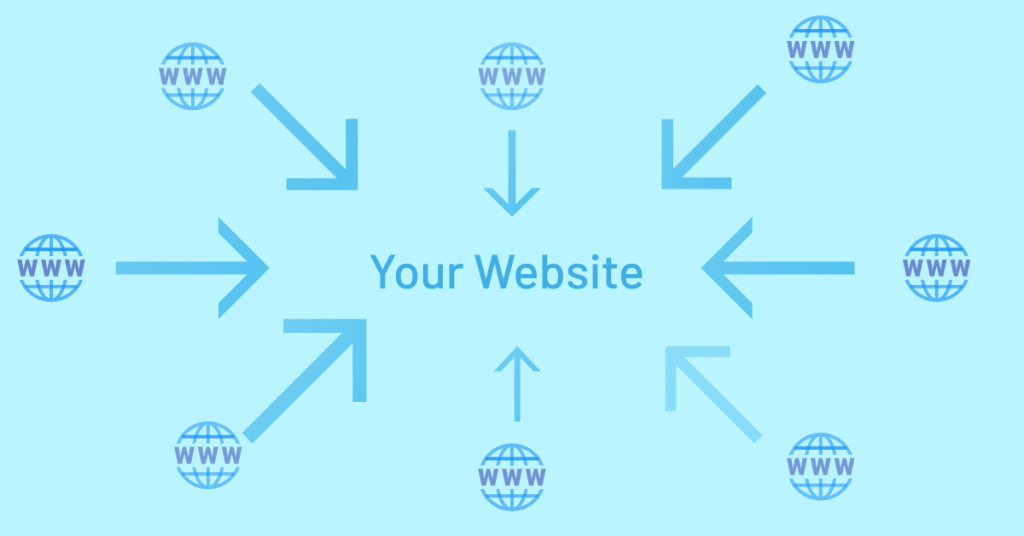For an online marketer, maximum time and attention is dedicated towards experimenting and implementing various strategies to boost their website’s rank. The objective is to ensure that the website lands up on the first page of the search engine results, and enjoys high visibility. However, the task is easier said than done, considering the tough competition and the unpredictability which is typical of the online world.

Many times, despite having tried everything, the outcome is far from satisfactory. Much to the frustration of the website owner, strategies may not click as intended, and the portal does not rank as highly as it should. In such a situation, the next step should be to identify the basis on which search engines assign rankings, and implement the same. To assist you in the battle of website ranking, discussed as follows are aspects that can truly make a difference.
Number of External Links
Internet jargon describes links as ‘votes’, and owing to the democratic nature of the online world, the entity with the maximum number of votes is the winner. Every time you link the content on your web page with that featured on another website, a link is formed and counts as a ‘vote’. Higher the number of links, the more votes you have, and the better are the chances of your rank being pushed up on the search engines.
Given that search engines are going to look for links when they check your website for ranking, you must strive to create as many as possible. Having more links than the competition is a big plus, but more importantly, these should add credibility to your web pages.
Inbound Links
Also known as backlinks, these lead back to your web pages from other sources on the Internet. While acquiring inbound links, do make it a point to ensure that these are from quality websites and authority sources. Search engines judge the value of inbound links in terms of how relevant they are to your website content and purpose. To this effect, backlinks from related websites boost rankings, and those from questionable sources push you further down the results page.

If you are serious about improving your website’s rank, check the number of inbound links that you have, compare them with those of your competition, and accordingly decide on the next course of action.
Allinanchor Concept
When you create a link on the web page, the words forming the link are referred to as anchor text, and because search engines use the same for placing your website on the results page, it technically serves as the ‘allinanchor’ rank. What you must understand is that the term ‘allinanchor’ comes into play only when the link and the source both feature the keyword and that the keyword is relevant on both sides of the link.
‘Allinanchor’ concept works in reverse proportion, wherein the lowest rank of #1 fetches the highest possible placement on the results page and vice versa .
Importance of this form of linking arises from the fact that while identifying links, search engines not only check the quality of links, but also their relevance in terms of the keyword in question.
Google’s Page Rank System
Larry Page, along with Sergey Brin, developed an algorithm named PageRank, a protocol that could be used to rank the web pages on search engines. As Stanford University’s alumni, the two founders of Google devised a system wherein web pages could be assigned a rank between 1 and 10 based on their importance and relevance.
Like links, PageRank is just as crucial in deciding how far from the top the website should be placed. Search engines focus on two aspects, wherein the first is concerned with inbound links and their content, and the second is concerned with the credibility and relevance of the sources that are used as links.
For example, if you have a website on Swiss tourism, not only should the inbound links feature the keyword related to tourism in the Alpine country, but also come from authority sites like the official portal or Britannica rather than a general blog like Quora.
TrustRank Method
With literally millions of websites on the Internet, how would you know which to trust, and which to avoid? This is exactly what a TrustRank does – it enables the genuine websites with high-quality content to climb up the search engine results while pushing down the spam portals. Since it is virtually impractical for human beings to categorize every website on the scale of trustworthiness, a ‘TrustRank’ system is used.
In this system, a badge of trust is awarded to websites that pride themselves on authenticity and credibility. Websites that have this badge are referred to as ‘seed’, and they are rewarded by the search engines by being placed as high up on the results page as possible. Going ahead, if you link your web pages to one of the seed websites, the trust factor will be attributed to you as well, thus adding to your credibility and eventually ranking.
How Unique Are the Websites?
Simply linking your web pages is not enough; search engines are bound to check how many different websites the links lead to and accordingly make up their minds as to where to place. Criteria that are employed in this benchmark include variety in the links as also their relevance to the subject matter,

On your part as the website owner you must ensure that the links lead to different websites instead of being focused on one. Equally important it is for the sources to be relevant to the content on your web pages. Once the search engines realize that your links are diverse as also pertaining, there is bound to be a positive impact on the position.
Temporary/ Permanent Ranking
Many times when the website has been newly launched, search engines assign top rankings to the pages, and the phenomenon is referred to as ‘fresh bot bounce’ in the Internet jargon. Before celebrating, you must realize that these are temporary and hold good for only the first few days, after which the actual rank is accorded. Usually this rank, which might be anywhere in the search results, is permanent and is reflective of your optimization efforts.
In the event that your website goes missing from the search engine results, chances are that you might have been penalized owing to wrong SEO practices. Under the circumstances, the appropriate course of action for you is to improve upon your existing practices, adopt new techniques and seek approval again.
Final Thoughts
Website rank does make a difference to an online venture – in fact it is significant to the point of being the make/break factor for the entrepreneur. Volume of business that you receive from the Internet has often been found to be directly proportional to where your website is ranked. Hence, it is but natural for entrepreneurs to be obsessed with their website’s rank and position in the search engine results.
That being said, these rank-improvement techniques are not standalone. For best results, they should be used in tandem with other optimization techniques, so that they are effective overall rather than being focused on specific areas.

